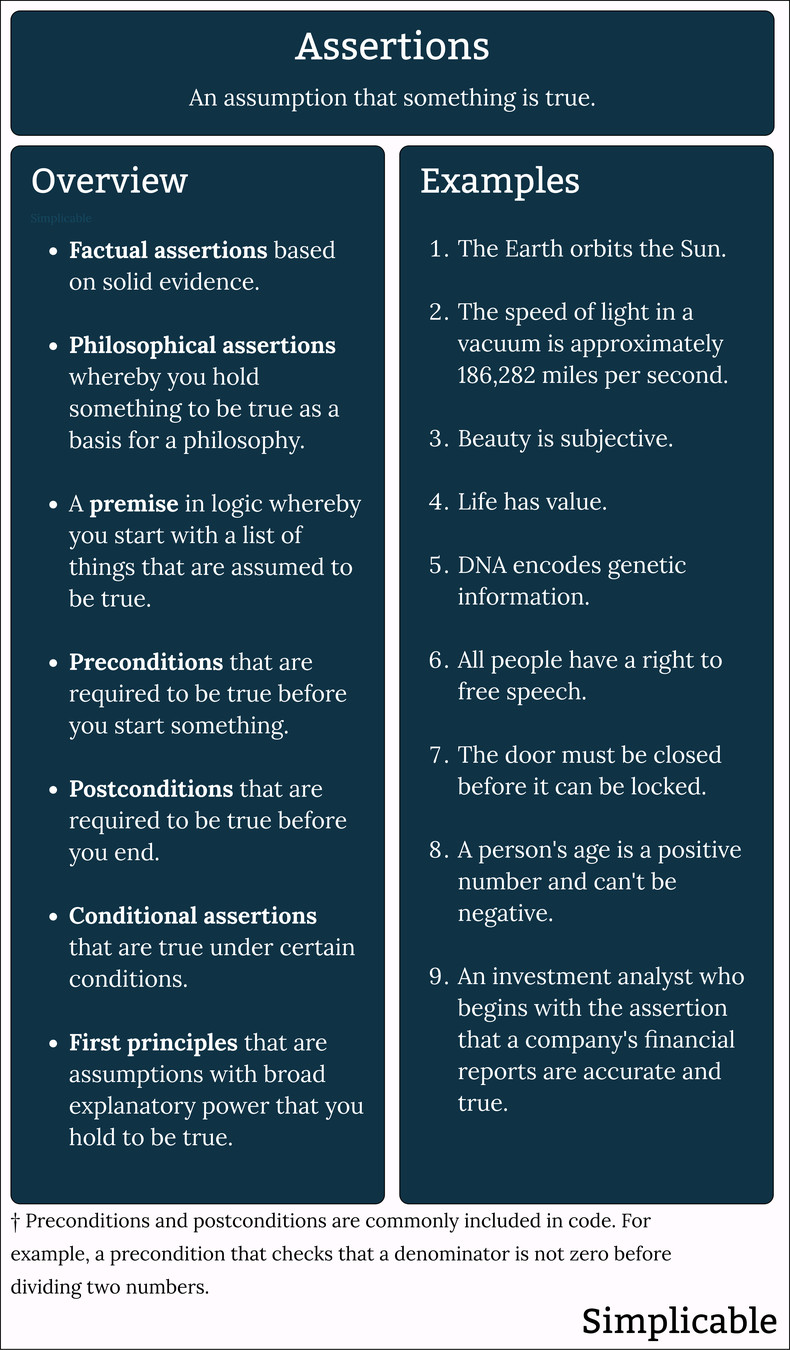
Fact
Assertion is most often used as a more accurate term for fact. It is very difficult to say that anything is a fact. For example, science uses terms such as theory and almost surely to describe facts because everything is always disputable. As such, assertion is the preferred term for known information in domains such as logic and math.Assertion: The Earth is a sphere, or more precisely an oblate spheroid.
Premise
A premise is an assertion that is used in a logical argument to support a conclusion.Premise: A reliable IT vendor delivers projects on budget.
Premise: Company A rarely delivers projects on budget.
Conclusion: Company A isn't a reliable IT vendor.
Premise: Company A rarely delivers projects on budget.
Conclusion: Company A isn't a reliable IT vendor.
Preconditions
A precondition is something that you need to be true to start. These are often defined as assertions at the beginning of a process. For example, in order to get on a flight a passenger's name must match on the ticket and the passport.Assertion: Ticket name and passport name are the same.
Postcondition
A postcondition is something that you need to be true to end a process. For example, an IT system that needs to be functional before the vendor can say its finished. This can be measured by testing the system against use cases.Assertion: The system satisfies all use cases.
Probabilities
Assertions need not be true or false but can indicate probabilities and degrees of truth.Assertion: Most Japanese people aren't very interested in Sumo.
Logical Arguments
Logical arguments are based on assertions whereby you suggest that one thing is true and that this means something else is true. At its simplest this can take the form "conclusion because assertion."Argument: The end of June isn't the best time to visit Tokyo because this is usually the middle of the rainy season.
Assertion: the end of June is rainy season in Tokyo
Assertion: rainy seasons aren't a good time to visit
Assertion: the end of June is rainy season in Tokyo
Assertion: rainy seasons aren't a good time to visit
First Principles
A first principle is a foundational assertion that you hold as true. These serve as guidelines that have broad implications for a domain, profession or activity.First Principle: First, do no harm
The first principle above is an assertion from the original Hippocratic oath historically taken by physicians.Assertions in Code
Assertions can be coded into some program languages such as Java. These are typically used as preconditions and postconditions for a method that can be turned off or on for a runtime environment. Assertions are typically turned on for unit testing to detect defects and are turned off in production to improve reliability and performance. Business logic should never be implemented as an assertion.Summary
Assertions are statements that you know to be true or hold to be true for some purpose.
| Overview: Assertions | ||
Type | ||
Definition | An assumption that something is true. | |
Related Concepts | ||
































